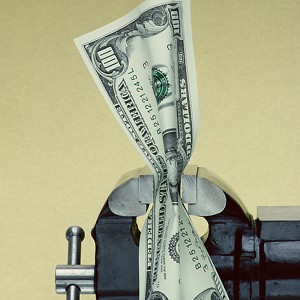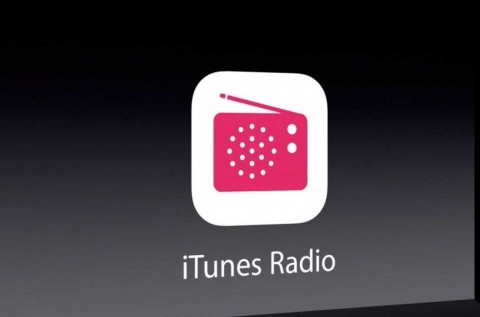10 Things Not To Do When Applying For A Credit Card

Do one of these things and Wham! you hurt yourself; we tell you how badly
As with any loan, applying for a credit card involves preparation, especially if your credit history is less than sparkling. But a few activities — some of them not obvious — can hurt your chances of getting approved for that new plastic.
If you’re looking for a card, the best thing you can do to increase your chances is to pull your credit report, review it for accuracy and analyze the data to make sure you’re in the best possible financial standing.he worst moves you can make to spoil your chances of getting a credit card? Lenders and financial counselors offered these top 10.
To further illustrate the impact, we’ve included Whammies, which show — on a scale of 0 to 4 — just how much each mistake will hurt you. The most Whammies, the more it hurts.
1. Letting Your Credit Score Slip
 |
Why It Hurts You: Credit card companies look at your score to make their ultimate decision on whether you get a card.
With increasing legal constraints on the lending industry and a surge in consumers with money woes, many credit card companies no longer offer credit to low-score applicants. You may be denied a credit card based on your score.
Lenders differ widely on their cutoff points. How can people find out the credit score requirements of a company prior to applying for a credit card?
“They cannot, since credit card companies don’t reveal this information,” said Ray Williams, president of Greenway Capital Management in Fort Worth, Texas. “Therefore, it’s best for consumers to understand how to determine if they are a good candidate by only applying if they have credit scores above 650 for most credit card companies. Some will allow 620 but with higher interest rates.”
Stuck with a low score? Consider applying for a secured credit card, which requires cash collateral, to help you build your score in the meantime.
2. Applying for a Lot of Credit Cards or Loans
 |
Why It Hurts You: Multiple inquiries into your credit report make up 10 percent of your score.
Maybe you’re interested in shopping around for the best deal and want to see who will approve you for a card. But think twice before going on a mass application spree.
“You don’t want to go out and apply for a bunch of different accounts before applying for a line of credit,” said Bruce McClary, representative for ClearPoint Credit Counseling Solutions and a former loan officer. “It may send a couple of messages. First, it tells the lender that you went to a bunch of places and got denied for some reason. Or the possibility exists that you opened an account in each of those places.”
A small amount of deal shopping is no big problem. Scoring models understand that those looking for a credit card — like those looking for a mortgage or an auto loan — will often consider several different lenders within a certain window of time. So, how many is too many? “More than a couple of inquiries would be enough to raise a yellow flag,” said McClary. “At five or six, you start getting into red-flag territory.”
3. Using Too Much Credit
 |
Why It Hurts You: Your credit utilization ratio accounts for 30 percent of your credit score. If you’re hovering near the max on your accounts, you’re considered a high risk to credit card companies.
“For any existing credit cards you have, you want to minimize percentage utilization and maximize credit available,” said Kevin Gallegos, vice president of Freedom Debt Relief in Tempe, Ariz.. “If you have a credit card with a limit of $10,000, and you owe $3,500 on it, that’s a 35 percent utilization. Anything over 35 percent is considered high and can impact credit scores, and thereby decrease your chances of getting another card. Over 50 percent will have a definite negative impact on a credit score, and a maxed-out card will very negatively impact the situation.”
[See a Guide to the Latest Credit Card Tricks]
4. Missing a Payment
 |
Why It Hurts You: Paying on time accounts for the biggest chunk of your credit score, weighing in at 35 percent.
Patrick Nichols, a database analyst from Boston, learned this lesson the hard way when he missed a payment deadline by just two hours. “I went from paying [an interest rate of] 0 percent to 30 percent overnight,” he said.
Nichols started shopping around for other cards to transfer his balance and came up short on offers. Not only did he have the late payment on his record, he also had a high balance and was starting to rack up multiple inquiries. He found he was limited only to cards with higher interest rates.
“On-time payments are the most important factor in developing good credit,” said Gallegos. “Paying bills on time for as little as one month can raise a modest credit score by 20 points.”
5. Having Too Many Subprime Loans on Your Report
 |
Why It Hurts You: If there are too many subprime lenders represented in your “credit mix,” (which accounts for 10 percent of your score), it could cause credit card companies to think twice about giving you a card.
This one’s kind of sneaky, because if you’re not careful, you could end up with a subprime loan even if you have good credit.
“[Lenders] look at what types of creditors you are doing business with, and some of them take issue with applicants who come in with a portfolio of subprime lenders,” said McClary. “It can affect prime borrowers without them even knowing – a lot of these retail finance type situations are backed by subprime lenders.”
McClary said that when people apply for a store credit card in order to take advantage of special financing offers or discounts – such as in furniture stores, for example – they need to pay careful attention to the financial institution that is offering the card.
Banks tend to be prime lenders but aren’t always. Finance companies tend to be subprime lenders but aren’t always. To tell the difference, you’ll have to do a little digging. For a public company, go to the investor relations section on its website and look at how they describe themselves. For a private firm, it’ll take a little more effort but you should be able to get a read on them by Googling the name of the company.
How much does this affect your credit? “It’s all about proportion,” McClary said. “If 90 percent of your creditors are prime creditors and you have this one subprime account, it’s going to be like a pebble in an ocean. On the other hand, if you’ve got a bunch of these store accounts, and they account for 50 or 60 percent of your [loans], that could potentially be a problem.”
6. Canceling Your Other Cards
 |
Why It Hurts You: Canceling accounts in good standing with other companies can delete your history of credit on your report (15 percent of your score) and can also reduce your available credit, which could drive up your debt utilization ratio.
People are often tempted to close out accounts they no longer use, just to keep things simple. But doing so can have a negative effect on your credit report.
“If you shut down a bunch of accounts at the same time, that starts cutting away at another piece of the pie for your credit score, which is the length of your credit history,” said McClary. “Plus, your debt ratio worsens when you shut down inactive accounts. Just leave them inactive.”
Of course, banks have closed countless inactive cards in recent years. It might be a good idea to make a small purchase — a pack of gum or a magazine, perhaps — on the card in question and then pay it off. That little activity could be enough to keep them from shutting your account down and damaging your credit without you knowing about it.
7. Failing to Check Your Credit report for Errors
 |
Why It Hurts You: A case of mistaken identity on your credit report could potentially mean that there are items on your report that belong to other people.
The problem can be a simple as having a too-common name or a name that frequently gets misspelled. OK, so there’s not a lot you can do if your name is “John Smith.” Still, you should be aware that your common name can make you more prone to mistaken identity when it comes to your credit report, which in turn could make it more difficult for you to secure a card. Up to 80 percent of credit reports contain errors. The good news is that most times, these can be fixed with a call to the credit bureaus.
For Revvell Revati, a natural health practitioner in Altadena, Calif., credit card companies often misspell her first name with a W instead of two Vs.
“It’s an ongoing problem,” she said. “I recently attempted to get a credit card and was turned down. I’ve been accused of fraud.”
There are a number of things people can do in these situations, said Cate Williams, vice president of financial literacy for Money Management International.
“First of all, always apply consistently for credit. Apply with your middle name, just to add another piece of recognition,” she said. “If this is a real problem and it happens consistently or you suspect that another person is trying to ride on your coattails, then you need to put a freeze on your credit. That protects you from anybody opening any new accounts.”
People with common names or misspelled names should also frequently review their credit reports and consider investing in credit monitoring services, Williams said.
[See 5 Keys to Unlocking a Better Credit Score]
8. Avoiding Credit Altogether
 |
Why It Hurts You: You need good credit history in order for credit card companies to consider you for a loan.
“Don’t try to protect things by not borrowing anything,” said Gallegos. “Credit card issuers and credit reporting agencies rely on past payment history to gauge how borrowers will do in the future. If you don’t borrow, they have no information to rely on. For those without any credit cards, a student loan or car loan helps build a credit history, as does paying every single bill on time and in full. That includes rent, phone, Internet and utility bills.”
9. Co-Signing a Loan for Someone Who Is Financially Reckless
 |
Why It Hurts You: When you co-sign, you take responsibility for the other person’s credit decisions — good or bad.
“Co-signing means you’re telling the bank that if he or she doesn’t pay it, I will,” said Sanford. “The problem is that if the person starts missing payments, the [lender] is not going to contact the co-signer until they’re 90 days late. You could have a 750 credit score, and the next thing you know you’re at 590.”
The solution is to make sure that when you co-sign for someone, the bills are mailed to you, so you can keep track of the person’s payments on the loan, he said.
10. Changing Jobs Too Many Times
 |
Why It Hurts You: Depending on the company, card issuers may question your income stability if you’re constantly moving around.
Your employment history likely won’t have much of an impact on your credit card application, since most applications are processed electronically using calculations based on your credit score alone. However, “more than two or three changes within a year or two might send up a red flag to some credit card issuers,” said Gallegos. “Very frequent job changes could — to some issuers — bring up questions of an applicant’s income stability, which ultimately affects their ability to pay.”







That’s great.very helpful,thanks a lot